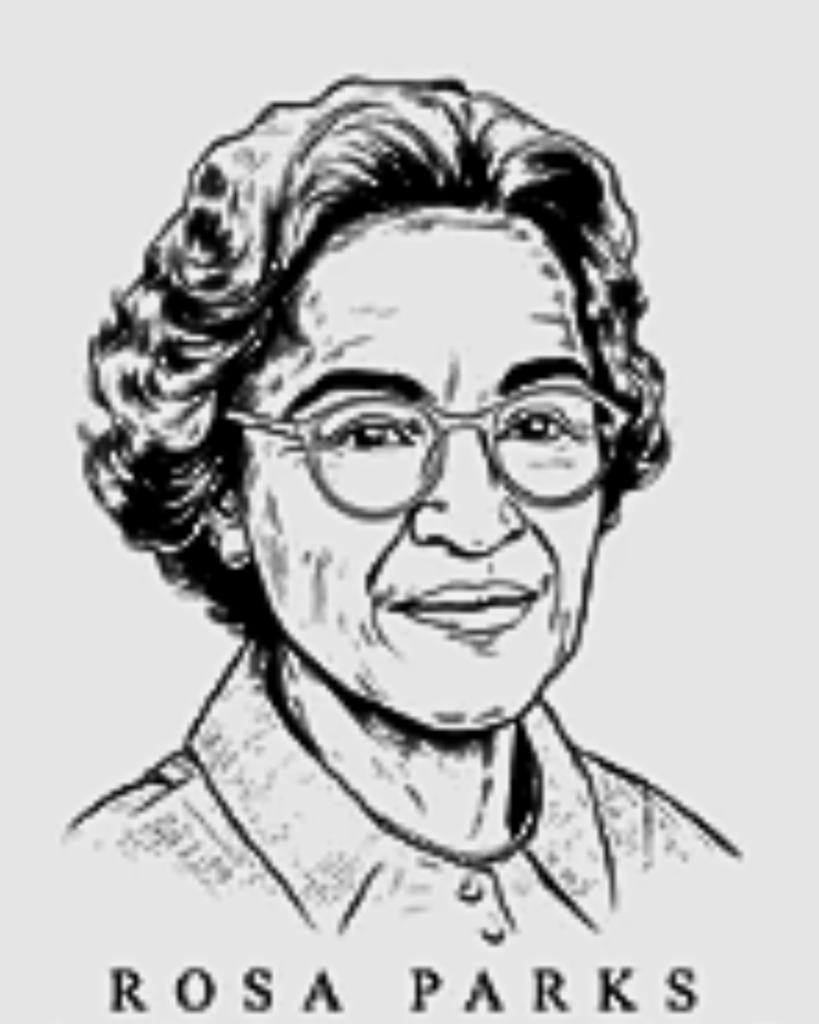Rosa Parks is widely celebrated as the “Mother of the Civil Rights Movement” for her courageous stand against racial segregation when she refused to give up her seat on a Montgomery, Alabama bus in 1955. Her act of defiance sparked the Montgomery Bus Boycott, a pivotal moment in the fight for racial equality. However, beyond her role in desegregation, Rosa Parks’ influence extended into another critical area: healthcare equity.
Her lifelong advocacy for justice and equal rights also played a part in shaping conversations about racial disparities in healthcare. Parks’ legacy serves as a reminder that the fight for civil rights includes ensuring fair and equal access to medical care, particularly for Black Americans who historically faced discrimination in hospitals, clinics, and other healthcare institutions.
Segregation in Healthcare: The Reality Rosa Parks Fought Against
During Rosa Parks’ lifetime, racial segregation was not limited to public transportation and schools—it was also deeply embedded in the healthcare system. Black patients were routinely denied treatment at white-only hospitals, forced to seek care at underfunded and overcrowded Black hospitals, or subjected to unethical medical practices. Many Black communities lacked access to quality medical care, which resulted in severe health disparities, higher mortality rates, and preventable suffering.
Even after the landmark Civil Rights Act of 1964, which legally ended segregation in public facilities, discrimination in healthcare persisted. Black Americans continued to receive substandard care due to racial bias in medical institutions, economic barriers, and systemic inequities. Rosa Parks understood that racial justice had to extend beyond transportation and voting rights—it had to include the right to quality, dignified healthcare.
Rosa Parks’ Advocacy for Healthcare Equity
Although Rosa Parks is most famous for her work in civil rights, she was also a strong advocate for healthcare justice. She worked with civil rights organizations that fought for fair medical treatment for Black Americans and stood alongside leaders who demanded better healthcare policies.
Support for Healthcare Initiatives
Parks supported various movements that aimed to improve healthcare access for marginalized communities. She was a lifelong member of the NAACP, an organization that, beyond its civil rights work, fought against healthcare discrimination and medical racism. The NAACP played a major role in advocating for desegregation in hospitals and increasing Black representation in the medical field.
Medical Discrimination and Civil Rights
Rosa Parks’ activism contributed to the broader civil rights movement’s push for healthcare reform. Her efforts helped bring attention to racial discrimination in hospitals, leading to the passage of the Civil Rights Act, which included Title VI—a provision that prohibited federally funded hospitals and healthcare facilities from discriminating based on race.
Health Challenges and Legacy
Later in life, Rosa Parks faced her own health struggles, including chronic illnesses and financial difficulties in accessing healthcare. Despite her iconic status, she was not immune to the very injustices she fought against. Her personal experience further highlighted the urgent need for healthcare policies that protected and provided for all individuals, regardless of race or economic status.
The Ongoing Fight for Healthcare Equity
Rosa Parks’ contributions to civil rights helped pave the way for many reforms, but racial disparities in healthcare still exist today. Black Americans continue to face higher rates of chronic illnesses, limited access to quality medical care, and systemic discrimination within healthcare institutions. The lessons from Rosa Parks’ activism remind us that the fight for equality must include advocating for:
- Culturally competent and bias-free medical care
- Improved healthcare access for underserved communities
- Increased Black representation in the medical profession
- Affordable home healthcare services for elderly and disabled individuals
Honoring Rosa Parks’ Legacy in Healthcare Today
As we celebrate Rosa Parks’ birthday, we honor not only her courage on a Montgomery bus but also her broader contributions to justice, including healthcare equity. Home healthcare agencies, hospitals, and medical professionals can carry her legacy forward by ensuring that every patient receives compassionate, fair, and high-quality care—regardless of race, background, or income.
Rosa Parks once said, “Each person must live their life as a model for others.” In the world of healthcare, this means standing against discrimination, advocating for policy changes, and working to eliminate health disparities. By continuing her fight for justice, we move closer to a future where healthcare is truly equal for all.




